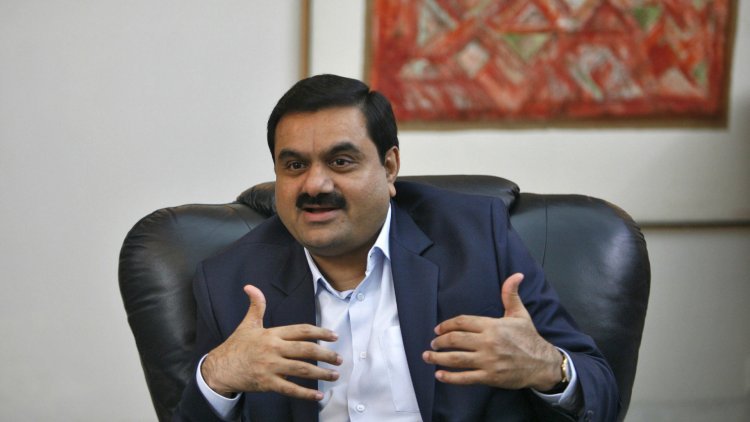Targeting retail customers, Adani's fundraising permits discount pricing
According to Chief Financial Officer Jugeshinder Singh, the company has the most flexibility with the 200 billion rupee ($2.5 billion) equity sale through the further public offer mechanism, which was approved Friday. This flexibility includes the ability to price the sale at a discount in order to appeal to more investors.

Gautam Adani's flagship company, Adani Enterprises Ltd., adopted a fundraising strategy for its $2.5 billion share offering that enables the company to court regular investors with possibly lower prices.
According to Chief Financial Officer Jugeshinder Singh, the company has the most flexibility with the 200 billion rupee ($2.5 billion) equity sale through the further public offer mechanism, which was approved Friday. This flexibility includes the ability to price the sale at a discount in order to appeal to more investors. Singh said the conglomerate was seeking a larger investor base that didn't mind a company investing in long-term initiatives that can take time to demonstrate results after enlisting key investors in recent years.
"We have invested strategically. "Patient capital is the next capital," stated Singh. Indian mom and pop investors make investments for their offspring.
For a stock that is trading at high valuations, the ability to price the share sale at a discount can make the offering more appealing. The fundraising is a part of the billionaire's overarching efforts to reduce debt ratios, win the trust of investors on a worldwide scale, and quell his critics. There are growing worries that the ports-to-power conglomerate's leverage and financial complexity have increased as a result of his frantic expansion into the media, cement, and green energy.
Sandip Bhagat, a partner at S&R Associates based in Mumbai, claims that the follow-on share offer "allows the company to broaden its investor base" because both new retail and institutional investors can participate. In contrast to a Qualified Institutional Placement, "free pricing is permitted," and in contrast to a rights issue, the company founders are not required to put up their own money in a subsequent share sale.
Price Freely
A stock that has increased more than 2,000% in value over the past four years will benefit greatly from the ability to price freely, according to statistics gathered by Bloomberg. Adani Enterprises is valued at more than 158 times its projected annual earnings. Comparatively, NSE Nifty 50, an index that includes Adani Enterprises, is at roughly 20 times, while Reliance Industries Ltd., the largest company by market value in India, is at about 22 times.
Retail investors must be permitted to purchase at least 35% of the additional shares being sold. That amounts to equity worth up to 70 billion rupees, falling just shy of the amount Life Insurance Corporation of India wanted to raise from individual investors in the country's largest-ever share sale early this year through a significantly discounted initial public offering.
According to Manan Lahoty, a partner at IndusLaw in Mumbai, this fundraising effort can also boost visibility with retail investors and increase float. Only two brokerages are currently keeping track of the firm, which is known for nurturing Adani's new businesses before they are ready to be spun off.
According to the Group CFO Singh, the additional share sale is a result of a strategy choice made several years ago to reorganise debt, bring in strategic investors, and then target patient capital for growth.




 admin
admin 




















